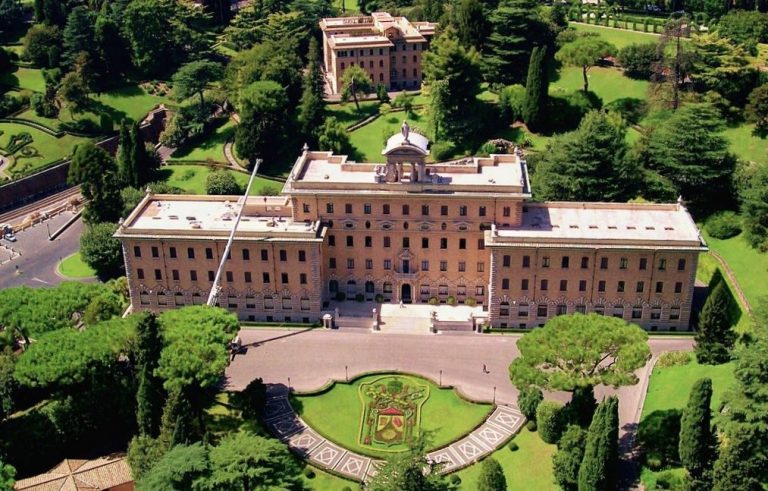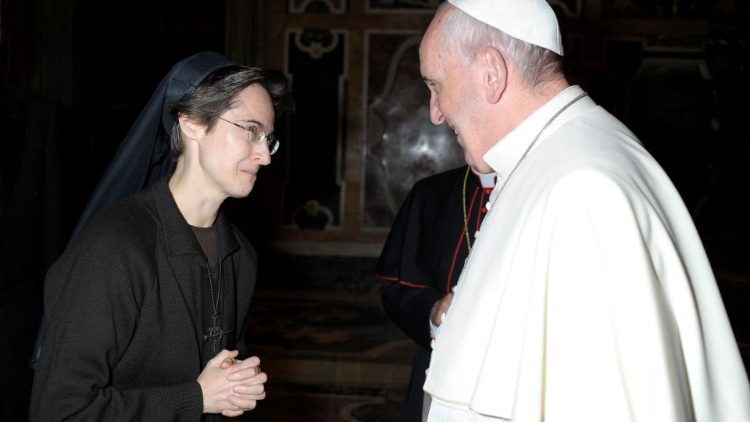Regulation of the Motu Proprio on Public Contracts
Apostolic Letter of May 19, 2021

On Tuesday, June 22, 2021, the Vatican’s Secretariat for the Economy published the Regulation for the implementation of the Apostolic Letter in the form of a Motu Proprio on the transparency, control, and competence in awarding procedures of public contracts of the Holy See and of Vatican City State, published on May 19, 2021.
The Secretariat explained that the implementation regulations published make operative the dispositions of the norms of public contracting. “The decisions taken combine the need for operative efficiency with the highest standards of transparency and principles of legality and loyal competence.” It is “a new concrete step in the path of the Holy See’s economic reform,” it adds.
The current document reveals that the 49 Articles and the seven Annexes of the said Motu Proprio, were adopted on June 22 of this year by Father Juan Antonio Guerrera Alves, Prefect of the Secretariat for the Economy and “papal delegate to interpret and implement within the Holy See the Supreme Pontiff Francis’ text, also in the light of other pronouncements of the Magisterium.”
Rules for the Roman Curia
As the explanatory text stresses, the rules of transparency, control, and competence are applied to all the purchases of services, supplies, and works within the Dicasteries and other organisms of the Roman Curia to which the Apostolic Constitution Pastor Bonus refers, as well as institutions linked to the Holy See and legal entities approved by the Council for Economy.
Pointed out in this connection is that the Commission of Confidential Affairs “can serve to conciliate the need of confidentiality with the other principles of transparency,” and that “the responsibilities have been clarified of the Administration of the Patrimony of the Apostolic See, of the requesting entities and beneficiaries of the purchases and of the qualified entities for the centralized purchases.
Subjects of the Procedure
The implementation regulation points out that the tasks are also detailed of the subjects of the procedure — from the person responsible for it to the qualified subjects. The Regulation regulates incompatible situations and conflicts of interest for all the subjects of the procedure. Likewise, the requirements of the economic operators are established and the documentation is identified that must be present to demonstrate their existence.
Among other things, it continues, the economic operators that are being investigated for attempted or committed crimes according to letters a), d) and t) of Article 12 paragraph 1 of the Regulation are excluded, “from participation in a procedure for the direct awarding of contracts and of inscription in the Register.”
These are investigations for crimes related to participation in a criminal organization, terrorism crimes, and exploitation of child labor. The text regulates the way for collaboration between economic operators and establishes that outsourcing is “permitted up to a maximum of 30% of the contract’s value.”
Tender
In regard to the fourth title of the Regulation, the Secretariat for the Economy argues that contracts for products or innovative services can be awarded at a fixed price. Likewise, there are some cases of simplified procedures with competence only in the economic component.
The meetings of the Selection Committee, which in carrying out its activities adjusts itself to the Directions contained in Annex 6, are held at the headquarters of the Administration of the Patrimony of the Apostolic See (APSA), where the documentation of the tender is kept.
In the case of “extremely urgent interventions,” APSA “can act without formalities, except for documenting as soon as possible the circumstances of the urgency and of the acts carried out.” It also regulates cases of lack of competence for technical reasons.
Execution of Contracts
The document clarifies that in centralized purchases the entity that is the recipient of the service designates the person responsible for the contract’s execution who, in turn, must communicate any negative facts to the person responsible for the procedure.” Moreover, the real beneficiary organism of a good or service expresses the evaluation of the economic operator and is called to “transmit to the Secretariat of the Economy the information data on the performance of the economic operators of whom they have received services.”
In regard to duration, “contracts of continuous and periodic execution will not be able to be made for a period longer than three years,” as established in the Regulation, but they will be able to be extended “up to a maximum of two more years” in certain circumstances. Finally, all contracts “cannot be modified, broadened, restricted, transferred or ceded, not even with the consent of all the parties.”
Without Influence in the Real Estate, Vigilance or Control Sector
Finally, the sixth title of the Regulation establishes that the realm of its implementation does not include the “dispositions regarding the operations of the real estate sector and to Vigilance and Control,” for which the Secretariat for the Economy will issue a new text before December 31, 2021.
The Decree of the Pontifical Delegate n. 1.2021, accompanied with seven Annexes, is promulgated through its publication in the Website of L’Osservatore Romano and comes into force on the day of its publication, before being published in the Acta Apostolicae Sedis and in the Website www.bandipubblici.va.
Secretariat for the Economy
According to the Vatican, Pope Francis established this entity on February 24, 2014, with the Motu Proprio Fidelis Dispensator et Prudens, as a Dicastery of the Roman Curia in charge of the coordination of economic and administrative affairs of the Holy See and of Vatican City State.
Taking into account what the Council for the Economy established, the Secretariat for the Economy is responsible for the control and economic supervision of the two previous ones and of the implementation of policies and procedures regarding purchases and the adequate allocation of human resources.
With the approval of the Statutes on February 22, 2015, the Holy Father transferred to the same some competencies attributed before to the Ordinary Section of the Administration of the Patrimony of the Apostolic See. The current Prefect of this Dicastery is Father Juan Antonio Guerrero Alves, and its Secretary-General is Dr. Maximino Caballero Ledo.
Translation by Virginia M. Forrester
Related

Sister Raffaella Petrini appointed as new president of Vatican Governorate
Exaudi Staff
17 February, 2025
1 min

Mary’s Meals at the Vatican: A Call to Action for Children
Exaudi Staff
31 January, 2025
2 min

Antiqua et Nova: Faith that unites past and present in a changing world
Exaudi Staff
28 January, 2025
3 min

Pope Francis’ celebrations for January and February
Exaudi Staff
08 January, 2025
1 min
 (EN)
(EN)
 (ES)
(ES)
 (IT)
(IT)

